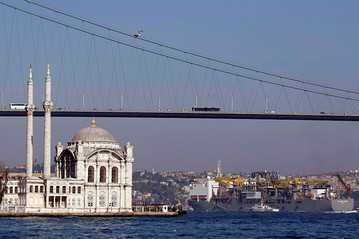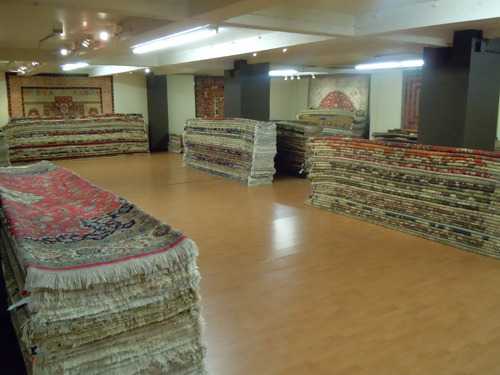ISTANBUL – Daily News with wires
A crippling parts shortage in the aftermath of the March 11 disaster in Japan has hit Toyota Motor’s production in Turkey, too. The company has decided to temporarily halt production at its European plants, including the one in Sakarya. The factory produces the ‘Verso’ and ‘Auris’ models and employs 2,600 workers

Toyota Motor has announced the suspension of production in its European plants, including Turkey, due to a serious shortage of parts following the March 11 earthquake and tsunami in Japan.
“We will not produce in our Sakarya factory [in northwestern Turkey], in accordance with the decision of Toyota Europe,” said Orhan Özer, the chief executive of Toyota Turkey.
“Most of our parts are supplied by Turkey and Europe, but we are having a supply deficit in the small number of parts that come from Japan,” Doğan news agency, or DHA, quoted him as saying.
The car manufacturer said Wednesday that it would halt European output at five plants between April 21 and May 2, including auto assembly factories in Turkey, Britain and France, as well as engine plants in Britain and Poland.
After the stoppages, the plants will run at limited capacity in May, the Associated Press reported.
Toyota Turkey is working to normalize the supply chain as soon as possible, Özer said.
The magnitude-9.0 earthquake and ensuing tsunami on March 11 destroyed auto parts factories in northeastern Japan, causing severe shortages for Toyota and other automakers. The world’s top automaker had said last week that it would suspend car production in North America in April.
The company’s Japanese plants will start production at a capacity of 50 percent as of April 18. The Sakarya factory produces the “Verso” and “Auris” models. Toyota’s production target for 2011 stands at 95,000 vehicles.
The Toyota factory employs 2,600 workers, while the parts industry in the region is estimated to employ about 6,000 more.
Big losses in the pipeline
Speaking to AP, Mamoru Kato, an auto analyst from Tokai Tokyo Securities, said that if the supply crunch continued, Toyota could incur “big losses” in the April-June quarter.
“The company simply cannot manufacture cars due to parts shortages. In North America and Europe, Toyota procures almost all engine parts from Japan. Suspended production in Japan and North America is a big blow to Toyota,” he said.
Toyota stock closed Wednesday slightly higher at 3,285 yen in Tokyo trading. The shares lost over 8.6 percent since the March 11 disaster.
In an analysis released Wednesday, three economists from Roubini Global Economics said challenges in substituting key Japanese inputs would raise global prices of those inputs and related final goods, particularly electronics and automobiles.
“Upstream Asian producers that compete directly with Japan will likely exercise more pricing power, commensurate with the degree of specialty of their product, provided they have adequate inventories,” said Michael Manetta, Arpitha Bykere and Adam Wolfe in their report. “But the boost to their export revenues may be offset by weaker global demand and lower production relative to 2010.”
In another development, Daihatsu Motor, a unit of Toyota, announced it would restart its Osaka and Kyoto plants on April 18, resuming production at all its factories.




